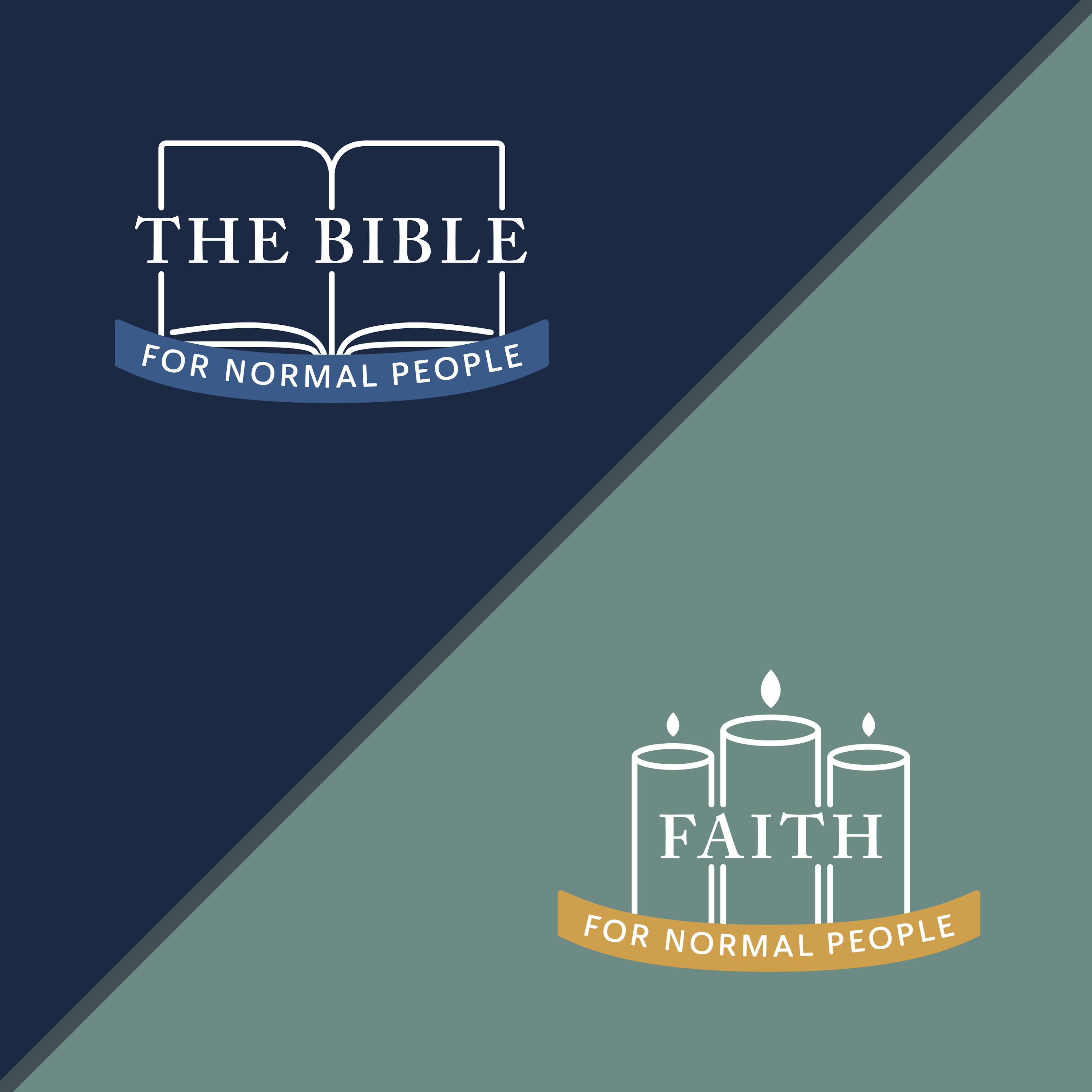
Tracks for the Journey
Tracks for the Journey will improve your well-being with practical insight and inspiration from progressive Christian spirituality, positive psychology, and justice ethics. Your host is Dr. Larry Payne, a minister, chaplain, and counselor with more than 45 years experience helping people with discoveries on their journey of life. He believes well-being is founded on balanced self-awareness, quality relationships, and active spirituality. Access all the resources of the Network at www.tracksforthejourney.com.
https://hopp.bio/tracksforthejourney
Tracks for the Journey
Can God Make You Healthy?
All of us care about having good physical health. We deal with illness, practice good habits, and watch our calories, right? When things go wrong, we can struggle with big questions about what we are doing and even God’s place in this quest. Can God make you healthy?
The insights of Process Christian Theology can help us deal with the health issues we face today. God's essential attribute is Love, the non-coercive activity that seeks the well-being of the world. The love of God brings freedom to us and all things to collaborate with God, or not. In our health, there are no divine interventions that alter the laws of nature. Our choices enable us to collaborate with God's good work for health.
Segments include:
A Theology of God's Power
The Nature of Love
God collaborates with things
God, Love, and your health
God and our freedom
We should work with God for health
CITED
Thomas Jay Oord, The Death of Omnipotence and the Birth of Amipotence. SacraSage Press, 2023
David Ray Griffin, Reenchangment without Supernaturalism. Cornell University Press, 2001.
Photo by silviarita on pixabay.com
Music by lemonstudio on pixabay.com
Subscribe to this podcast for only $5 per month to get a monthly bonus episode, access to exclusive subscriber-only episodes, and the POSTINGS weekly newsletter on Substack with more resources for well-being!
Subscribe at https://tracksforthejourney.buzzsprout.com
Enjoy the Youtube Channel at https://www.youtube.com/@tracksforthejourney77
I spent many years working as a hospital chaplain. Each day brought the challenges of caring in the midst of illness, accidents, and death. One day I visited a patient in the ICU. His body was failing under the onslaught of cancer despite months of treatment. The family crowded around the bed. The pastor of the church they attended stood with them, fervently invoking God to heal the emaciated body, commanding the demons of cancer to leave, and pleading for the family to have more faith. I stepped away, only to be called back when the man died. The grieving family needed comfort and support. Their questions were as old as humanity itself: why didn’t God heal this loved one? It’s a question that takes us to the bedrock of our beliefs. In today’s episode let’s explore the question, can God make you healthy?
The Christian theology held by many church-goers has a contradiction between God and the actual events of life. It may claim that God has the power to do anything. That’s usually called “omnipotence.” A Bible verse is quoted, “Nothing will be impossible with God” (Luke 1:37 NRSVUE). But we misinterpret this hyperbole when we hold it as literally, physically true. For example, God can’t make a round square, or change the past, or do evil. Instead, we should begin with a better understanding of God’s attributes. The Bible teaches that the essential attribute of God’s nature is love. Everything power that God expresses will flow from love. With Process Theologian Thomas Jay Oord we can call this “amipotence,” meaning loving power. In his words, “Love comes first.” (Amipotence 121) Any power God exerts must be in line with love.
Now here’s a second idea about the nature of love. What is love, really? Human relationships demonstrate that the highest love is uncontrolling and noncoercive. Love must always be a free choice. God loves in the same way, not forcing us to obey and love but leaving that choice to us. This essential truth means that God is always working in uncontrolling ways. Oord writes, “God’s loving nature determines, shapes, or governs what God can do” (Can’t 27).
A third concept is crucial. God extends this same uncontrolling love to the material universe. Essentially, the very nature of love means that God can’t unilaterally alter the physical universe to contradict the law-like regularities of physics. Every action in the universe, from cells to human bodies to stars, is a collaboration with God by the physical entities. God offers an initial direction that can be resisted or received toward a new and collaborative experience. Things and people engage with God to grow, change, generate new forms, build relationships and flourish—or not. All the world is enchanted with the presence and loving power of God. As David Griffin expresses it, “The universe is a compound individual with God as its dominant member.” (Reenchantment 142)
For the healing of our bodies, noncoercive relationship means that God cannot make cancer cells disappear, a heart to beat properly, or a bone to heal instantanously. Acting as a sole agent, God can’t make you well. God’s work is collaborative with the physical world and this precludes what we call supernatural interventions which overrule the laws of nature. Instead, we find the amipotent work of God shown through inspiring medical researchers, nurturing skilled professionals, and luring me to eat healthy food. It may also come through the wise words of a therapist or the scalpel of a surgeon. Sometimes our own thoughts can bring a dramatic transformation by psychosomatic changes in the interplay of mind and body. All of this we can call the real miracles of our life! Quoting Oord again, “Miracles occur when creatures, organisms, or entities… cooperate with God’s initiating and empowering love… God offers new possibilities, forms, structures, or ways of being… to which creatures or creation might conform.” (Uncontrolling, 199-200)
Considering the critically ill patient I was with, the supportive family, medical treatments across many months, and personnel who worked so hard were the embodiment of God’s love. The patient had made choices to work with these to prolong his life for many months. As I stood with the family after his death, I could even say that divine love made a way for him to experience a greater dimension of health after death in the eternal presence of God. Amen!
Now some may say, “This is terrible! I need God to control my world and keep me safe!” I understand that hope. But the reality of our world doesn’t support that hope. Terrible accidents happen, cancer cells grow, and abusive parents hurt children. In this harsh fact we find God seeking the best but organisms and people resist, with terrible outcomes. And really, we don’t want a world where God controls everything and everyone, for that renders us mere puppets on the divine string of a capricious, despotic deity.
It is wiser to see that we must work with God to enhance well-being and good health for ourselves and our communities. We must use the power of choice to follow God’s persuasive energy to promote well-being.
Getting practical about our health, we can collaborate in so many ways. We can eat healthy food. We can address our mental health to deal with moods, fears, or innate drives. We can build social networks by acting with compassion, kindness, and justice. We can get vaccinated and have regular check-ups afforded by modern medicine. We can pray, synergizing our tiny energy with the mighty energy of the divine. All of this does not prevent accidents, actions of evil against us, disappointments, or our cells following the genetic codes we inherited at birth. Yet we can embrace the reality of God working every moment to generate directions for well-being which we can follow.
This month has been a personal journey of health. I’ve encountered dental problems and two forms of pre-cancerous skin growths. I’ve been drilled on, cut on, injected, and medicated! I’ve tried to follow the careful treatment plans of people trained by the most advanced medical science in human history. And I have also prayed that my moments of choice would be in collaboration with the ever-present, ever-loving, good work of God. Since the outcome is not pre-determined but open to the interplay of our complex world, I’ll keep you posted.
I invite you to open your own physical journey to the wonder of this God and the world God’s mighty, uncontrolling love is unfolding. Remember, nothing can separate you from that mighty energy!
CITED
Thomas Jay Oord, The Death of Omnipotence and the Birth of Amipotence. SacraSage Press, 2023
David Ray Griffin, Reenchangment without Supernaturalism. Cornell University Press, 2001.
Podcasts we love
Check out these other fine podcasts recommended by us, not an algorithm.

The Bible For Normal People
Peter Enns and Jared Byas
Hidden Brain
Hidden Brain, Shankar Vedantam
The Happiness Lab with Dr. Laurie Santos
Pushkin Industries